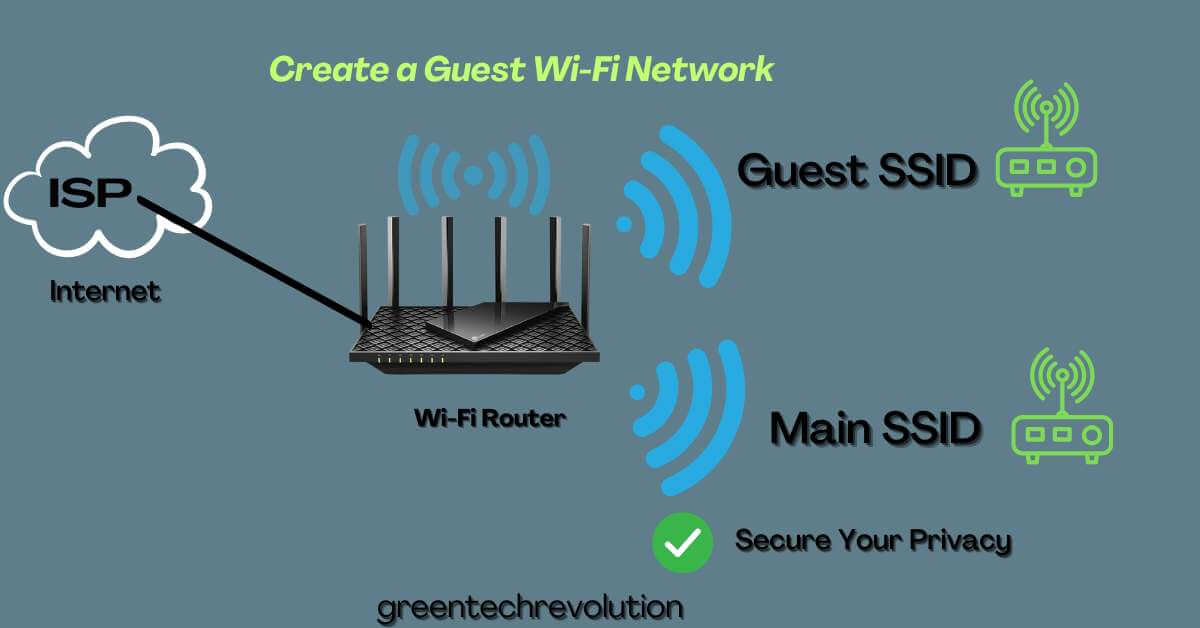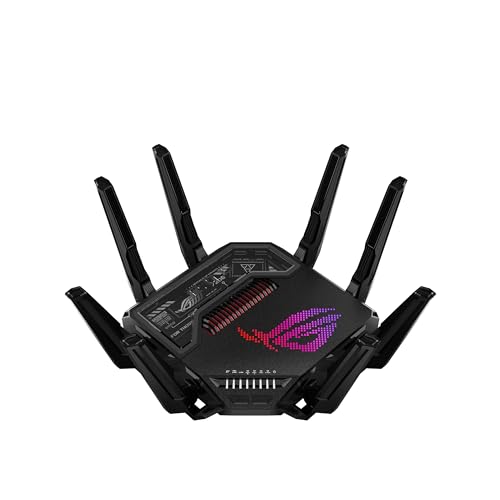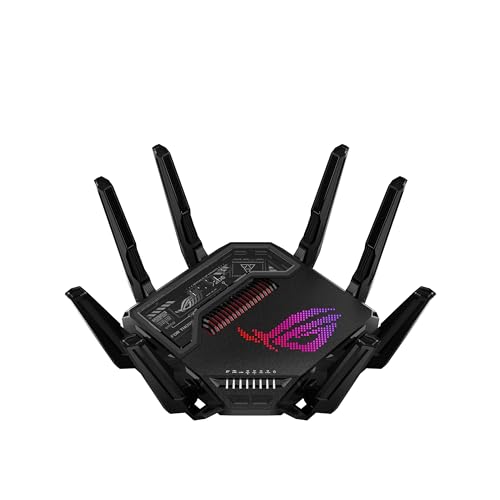What is a Wi-Fi Router with a Guest Network? Actually, A Wi-Fi router is a device that connects your devices to the internet without wire. It bridges the gap between your modem and your devices, allowing you to access the internet without using cables. It’s an essential piece of hardware for anyone who wants to connect their laptop, smartphone, or gaming console to the internet.
A Wi-Fi router with a guest network allows you to create a separate wireless network that visitors can use without accessing your main network. This is an excellent feature for those who want to share their Wi-Fi with guests but don’t want them accessing personal files or devices on the main network. Guests connected through this secondary network will have limited access only to the internet.
Moreover, some routers also come with parental controls that give parents greater control over what content their children can access online. With these features, parents can set up filters or block certain websites and applications from being accessed on specific devices or throughout the entire network. In summary, having a modern Wi-Fi router with guest networks and parental controls saves you from security threats while giving you complete control over who accesses your home’s wireless connections.
Benefits of Using a Guest Network
A Wi-Fi router with a guest network is a router that allows you to create a separate network for guests to use. This means that your guests will be able to connect to the internet without accessing your main network, which is great for security reasons. The benefits of using a guest network are many.
First, it helps protect your personal information by keeping it separate from the guests’ devices. Second, it reduces the risk of malware and viruses being spread through your main network since guests would only have access to their own devices on the guest network. Finally, it provides convenience since you won’t need to share your Wi-Fi password with every new guest who visits.
In addition, creating a separate guest network can also help you manage bandwidth usage if you have multiple people using your internet connection at once. You can set up rules and limits on the guest network while keeping full control over your main network.
- Security: A guest network helps to keep your main network secure by isolating guest devices from your internal network.
- Privacy: Guests can use your Wi-Fi network without accessing your personal files or devices.
- Bandwidth: Guests on your guest network will not slow down your main network’s performance.
- Convenience: Guests can easily connect to your guest network without having to enter a password or share your main network’s credentials.
Overall, using a Wi-Fi router with a guest network is an excellent way to ensure privacy and security in your home or office while providing easy access for visitors.
What is a Wi-Fi router with a guest network?
A Wi-Fi router with a guest network is a type of router that provides an additional wireless network for guests to connect to. It allows users to create a separate network for guests that is isolated from the main network, providing a secure and convenient way for guests to connect to the internet without compromising the security of the main network.
The guest network is typically set up as a separate virtual network within the router, which is isolated from the main network by default. This means that guests cannot access resources on the main network, such as files, printers, or other devices. Instead, they are restricted to accessing the internet only.
Most Wi-Fi routers with guest networks provide additional security features to protect both the main network and the guest network. For example, they may support WPA2 encryption, which provides secure communication between devices on the network, as well as MAC address filtering, which restricts access to specific devices. They may also provide access controls and other features that allow administrators to control and manage the guest network more effectively.
In addition to providing additional security, a Wi-Fi router with a guest network can be a convenient feature for businesses or households that regularly host guests. It allows guests to connect to the internet without needing access to the main network password, and can be configured to automatically expire the guest network credentials after a certain amount of time. This ensures that guests can only access the network for a limited time, improving the security of the main network.
Overall, a Wi-Fi router with a guest network is a valuable feature for anyone who wants to provide secure and convenient internet access for guests while maintaining the security of their main network. It provides a separate network for guests to connect to, isolated from the main network, and offers additional security features to protect both the main network and the guest network.
How to Set up Your Wi-Fi Router with a Guest Network
A Wi-Fi router with a guest network is a type of wireless networking device that allows you to set up different networks for different purposes. The primary network is used by you and your family or employees, while the guest network is used by visitors or guests who need access to the internet without compromising your main network’s security. Setting up a guest network on your Wi-Fi router can be an excellent way to offer internet access to guests without giving them full access to your primary network.
To set up a guest network on your Wi-Fi router, first, log in to the router’s configuration page using a web browser. Then navigate to the “Guest Network” section and enable it. You can choose whether you want guests to have access only to the internet or also allow them access to certain devices on your primary network. Next, configure the SSID (network name) and password for the guest network, making sure they are easy enough for guests to remember but secure enough not to be guessed easily.
Steps:
- Log in to your Wi-Fi router’s admin panel.
- Look for the “Guest Network” or “Guest Wi-Fi” option.
- Enable the guest network option.
- Configure the guest network settings, such as the network name, security type, and password.
- Save your changes.
Finally, setting up a guest network on your Wi-Fi router is an effective way of ensuring visitors’ internet access without compromising sensitive information on your primary wireless networking device. It is relatively easy and straightforward if you follow these simple steps mentioned above. So, take some time out today and set up this feature for better convenience whenever someone visits!
Security Considerations for Guest Network
A Wi-Fi router with a guest network is a convenient feature that allows visitors to access the internet via a separate Wi-Fi network. This means that guests can surf the web, check their email, and stream videos without compromising the security of your primary network. However, there are some important security considerations to keep in mind when setting up a guest network.
Firstly, it’s essential to ensure that your guest network is password-protected. This will prevent unauthorized users from accessing your internet connection and potentially stealing sensitive information. Additionally, many routers offer the option of creating time-limited passwords for guests, meaning that they only have access for a limited period before being automatically disconnected.
Another key consideration when setting up a guest network is ensuring that it’s isolated from your primary network. This means that even if an attacker gains access to your guest network, they won’t be able to connect to devices on your primary home or office networks. Finally, you should consider using additional security measures such as VPNs or firewalls to further protect both yourself and any guests who use your Wi-Fi router’s guest network.
Advantages of Having a Separate Guest Network
A Wi-Fi router with a guest network is a device that allows you to create two separate networks within your home or office. One network is for personal use, while the other is designated for guests. The main advantage of having a separate guest network is increased security. By creating a different network for your guests, you can limit their access to sensitive data and protect your personal information from potential threats.
Another advantage of having a separate guest network is improved bandwidth management. If too many people are using the same Wi-Fi connection at once, it can cause slow speeds and connectivity issues. A dedicated guest network ensures that visitors have their own bandwidth and won’t compete with the primary users for internet speed.
Lastly, having a separate guest network can make it easier to troubleshoot problems when they arise. When you have multiple devices connected to one network, it can be difficult to determine which device is causing an issue or slowing down the connection. With separate networks, issues are isolated more easily and resolved quickly without disrupting everyone’s access to the internet on either side of the router’s spectrum.
Managing the Guest Network Settings
A Wi-Fi router with a guest network is a wireless device that has two separate networks, one for the owners and authorized users, and another for guests. The primary purpose of creating a guest network is to provide internet access to visitors without compromising the security of your primary network. By using this feature, you can control what your guests can access on the internet and protect your private files from unauthorized access.
Managing the guest network settings involves setting up an appropriate password and configuring several other settings such as bandwidth control, parental controls, and time limits. With these settings in place, you can restrict any unwanted activity or limit bandwidth usage by your guests. Additionally, some routers offer options to set up multiple guest networks with different levels of access based on the type of visitor you are hosting.
Overall, managing guest network settings helps ensure that both you and your guests enjoy safe internet browsing experiences while maintaining privacy on personal devices.
Tips for Securing Your Guest Network
While a guest network can help to secure your main network, it’s still essential to take steps to secure your guest network. Here are some tips to ensure your guest network is secure:
- Use a strong password: When setting up your guest network, use a strong password to prevent unauthorized access.
- Change the password regularly: Change the password of your guest network regularly to ensure its security.
- Limit the number of devices: Set a limit on the number of devices that can connect to your guest network.
- Disable guest network when not in use: Disable the guest network when it’s not in use to prevent unauthorized access.
- Update your router’s firmware: Keep your router’s firmware up to date to ensure that any known vulnerabilities are fixed.
Limitations of a Guest Network
While a guest network is an essential feature for securing your main network, there are some limitations to be aware of, such as:
- Limited functionality: Guests on your guest network may not be able to access certain features of your main network, such as network drives or printers.
- Bandwidth limitations: If too many guests connect to your guest network, it may slow down the network’s performance.
- Compatibility issues: Some devices may not be compatible with your guest network’s security settings.
Why is a Guest Network Essential?
A guest network is essential for several reasons. Firstly, it provides a separate network for guests to connect to, ensuring that they cannot access your main network. This is crucial for protecting sensitive data, as guests may have malicious intentions or inadvertently access private information.
Secondly, a guest network can improve the overall security of your network by limiting access to specific devices and resources. For example, you can restrict guest network access to the internet only, preventing them from accessing network drives or printers. This can prevent potential security breaches and unauthorized access to your network.
Thirdly, a guest network provides privacy for your guests. They can connect to the internet without being able to see or interact with other devices on the network. This can be especially important for businesses or organizations that handle sensitive information and need to maintain client privacy.
Lastly, a guest network can be a convenient feature for both businesses and individuals. It allows guests to connect to the internet without having to share your main network’s password or compromising your network’s security. This can be especially useful for businesses that host events or have clients visiting their premises.
Overall, a guest network is an essential feature for securing your network and protecting your sensitive data, ensuring privacy for your guests, and providing convenience for both individuals and businesses.
Frequently Asked Questions
Can I set up a guest network on any Wi-Fi router?
Most modern Wi-Fi routers support guest networks. However, it’s best to check your router’s user manual to ensure that it has this feature.
Can guests access my files on the main network?
No, guests on your guest network cannot access files or devices on your main network.
Can I set up multiple guest networks?
It depends on your router’s capabilities. Some routers allow you to set up multiple guest networks, while others only support one.
How do I change the password for my guest network?
You can change the password for your guest network in your router’s admin panel under the guest network settings.
Is it necessary to set up a guest network?
While not necessary, setting up a guest network is highly recommended to improve the security of your main network.
Final Thoughts
A Wi-Fi router with a guest network is a network system that allows visitors or guests to access the internet without having access to your primary network. The guest network provides a separate set of login credentials, and the traffic on this network is isolated from the main one. This type of router can be advantageous in many ways, especially for businesses and homes that receive frequent guests.
Firstly, it helps to increase security by keeping personal data private while still giving visitors easy access to the internet. With a guest network, users don’t need to share their passwords or connect their devices directly to your primary Wi-Fi connection. As such, you won’t have unauthorized people accessing sensitive information like bank account details or other personal data.
Secondly, a Wi-Fi router with a guest network can improve overall bandwidth performance by reducing unnecessary load on the main connection. Visitors using the guest network will not consume as much bandwidth as those on your primary one. Therefore you’ll have better streaming capabilities and faster download speeds when using multiple devices.
In conclusion, investing in a Wi-Fi router with a guest network is an excellent idea if you receive regular visits from family members, friends, colleagues or clients who require internet connectivity. It keeps your personal information secure while ensuring that they enjoy fast and reliable internet services during their stay at your premises.






Leave a Reply
You must be logged in to post a comment.